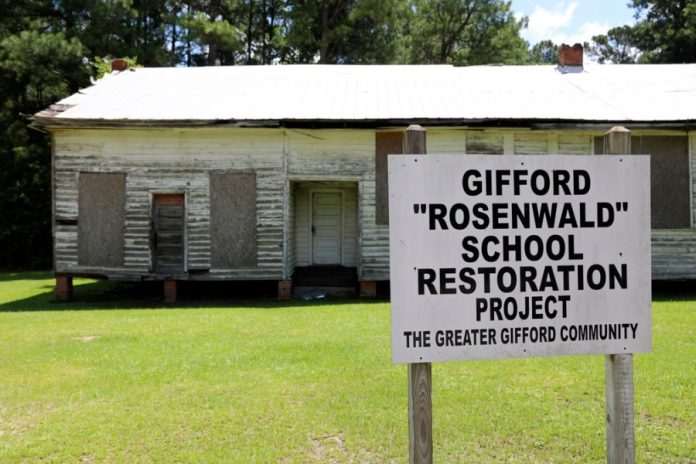
Most education reformers — especially those interested in low-income communities — rightly focus on the needs and interests of students, whether they are discussing short-term outcomes like standardized testing results, or longer term results like rates of college acceptance and graduation.
But the most important question they should be asking is: What do the parents in these communities want for their children? What do their extended family, mentors and pastors want?
Unfortunately, even the best-intentioned reformers rarely entertain this question.
Parents are the most important stakeholders in matters of education after the children themselves, yet reformers’ ideological and emotional interests consistently take precedence over those of the parents and the local community.
All too often, the education of poor or marginalized children gets lost in ideological battles between groups of elites who are completely removed from the communities they purport to defend.
Elitist social justice initiatives — such as tossing out commonsense academic and behavioral standards because of supposed racial justice concerns — are a prime example of this “soft bigotry of low expectations.” Is it acceptable to lower standards for certain children even if their parents want them to be held to a higher standard?
Respect and consideration of parental priorities is one of the major reasons that indigenous, community-oriented and community-generated educational projects produce objectively excellent and even superior outcomes to top-down interventions from reformers outside the community.
Take the Rosenwald schools: Booker T. Washington of the Tuskegee Institute and Julius Rosenwald, then-president of Sears Roebuck, joined to create one of the most remarkable educational successes of American history — yet remarkably few people know that they ever existed.
Noting the dire lack of funding for education of Black children in the Jim Crow-era South, the Rosenwald Fund contributed $4.3 million — matched and exceeded by $4.7 million raised by Black communities themselves — to build over 5,000 schools, shops and associated homes across the segregated South.
The Rosenwald schools were both very successful and indigenous projects: The seed money empowered local men, women and children to narrow the racial literacy gap in the Jim Crow-era American South by a stunning 40 percent. Within a generation, a three-year racial education gap shrank to well under a year. These highly localized, community-driven projects succeeded in the face of widespread, bitter discrimination.
A modern-day example of indigenously led excellence can be seen in the Piney Woods School, a challenging preparatory school serving underprivileged children that was founded by Laurence Clifton Jones in 1909.
Piney Woods serves a student body that wouldn’t otherwise have access to a high-quality education, and relies largely on the generosity of donors to fund the scholarships for many of those who attend.
But these kids, and their families, don’t want a handout. They don’t want low expectations. They want a challenge. And a challenge is what they receive. The school emphasizes self-responsibility, self-government and empowerment from within the communities and families it serves rather than from outside or “above” them.
Every student commits to working an on-campus job — in fact, the bulk of the campus buildings were built by students themselves. And their families donate or contribute to the school. They aren’t looking to be accommodated or coddled. They don’t want to be excused, and never have — even in the face of clear racism.
There is a cautionary tale of reform, however, and it is the charter school movement. Charter schools are an increasingly common and often promising mode of educational reform, but they often flounder on the simple fact that reformers eventually rely on politics, rather than community interests, to guide their decisions.
Former inner-city public school teacher Robert Pondiscio, in his recent review of Steve Wilson’s book “The Lost Decade,” briefly recounts the rise and fall of the “no excuses” charter school model.
In its ascendant years, the model allowed urban and underprivileged students to excel beyond anyone’s expectations. But then it failed, catastrophically, under the growing weight of social justice culture.
The schools that offered an irreplaceable chance at academic excellence — and long-term professional success — to Black students all over the country were sabotaged by the anxieties of political elites locked in pointless ideological battles over “whiteness.” White guilt became more important than Black excellence.
These charter schools abandoned the “no excuses” standards that had helped lift students up from disadvantaged backgrounds as outdated or racist, replacing them with “equity” initiatives that are leading today to low scores and low achievement. But no one asked the community leaders, who stand to gain or lose the most, if they were on board with these changes.
Parents are stakeholders. Children are stakeholders. Siblings, aunts and uncles, mentors, pastors — anyone invested in these kids’ lives are stakeholders. And that is the only real safeguard that communities have here: direct participation in and influence over the well-being of the children.
If we want to build a more just society, we can and should begin by abandoning the top-down, ideologically-motivated model of educational reform. We must stop letting the elites destroy the strongest chance our most vulnerable children have at improving their station in life.
Indigenous projects are the very best of our past — and they will be the very best of our future.
Bob Woodson is the founder and president of the Woodson Center, and editor of the book “A Pathway to American Renewal: Red, White, and Black Vol II.” Will Crossley is the executive vice president of the Woodson Center and president of the Piney Woods School.

